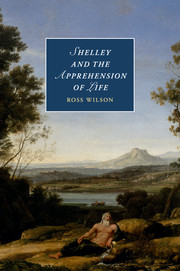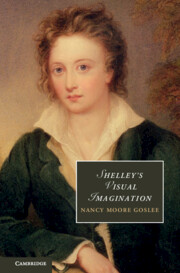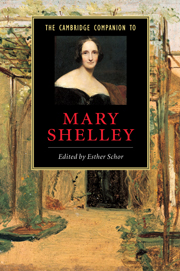Shelley and the Apprehension of Life
Percy Bysshe Shelley, in the essay 'On Life' (1819), stated 'We live on, and in living we lose the apprehension of life'. Ross Wilson uses this statement as a starting point to explore Shelley's fundamental beliefs about life and the significance of poetry. Drawing on a wide range of Shelley's own writing and on philosophical thinking from Plato to the present, this book offers a timely intervention in the debate about what Romantic poets understood by 'life'. For Shelley, it demonstrates poetry is emphatically 'living melody', which stands in resolute contrast to a world in which life does not live. Wilson argues that Shelley's concern with the opposition between 'living' and 'the apprehension of life' is fundamental to his work and lies at the heart of Romantic-era thought.
- Offers a timely intervention in the debate about what Romantic poets understood by 'life'
- Encompasses the whole range of Shelley's work, published and unpublished, to show his view of verse as an enlivening force against life's injustice
- Places Shelley's poetics in its broad philosophical context, from Plato to the present
Reviews & endorsements
"… compelling, beautifully executed and, to use one of Wilson's key terms, profoundly animating …"
Stuart Allen, The BARS Review
Product details
January 2016Paperback
9781107628625
244 pages
230 × 153 × 14 mm
0.42kg
Available
Table of Contents
- Introduction
- 1. Poetry and the theory of life
- 2. Living losing life
- 3. Mere wheels of work
- 4. Happier forms
- 5. Sounds of air
- 6. Poetry and the life of theory
- Coda.





